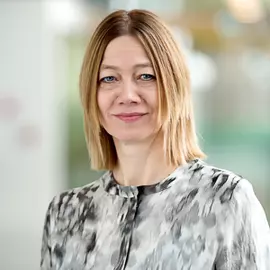Bridging the gap: Dialogues between scientists and the public, policymakers, and journalists about lost past pandemic experiences
Description
Since COVID-19, interest in past pandemics has been greater than ever because lessons from history can contribute to a better understanding of the present. However, COVID-19 has revealed a flagrant memory gap about pandemics: Switzerland has lost its “collective memory” of 20th century epidemics. The experiences of past epidemics have been forgotten, only fragmentarily researched, and existing knowledge is poorly communicated to the public at large and among policymakers. To fill this gap, the project team has intensively studied past pandemics in Switzerland (e.g., 1890, 1918, 1957). We aim to provide evidence-based knowledge from the past in view of a future pandemic. Our publications resulting from these research projects have received considerable national and international attention. Since 2022, the four Agora applicants have been working on a pilot and outreach project called LEAD (funded by the DIZH). We are developing a publicly accessible dissemination hub that provides open research data as well as selective data stories from past pandemics in Switzerland. Using personas, we have defined and described the public, policymakers, and journalists as target groups. The LEAD project will be completed in March 2023. Thus far, efforts to communicate our findings have been more digitally focused. Our next step is to build on the publications/projects and the LEAD hub. Further, we will initiate a more direct dialogue between researchers and target groups. The goal of the proposed Agora project is to create a multi-way communication approach that seeks to establish a dialogue between us researchers on the one hand, and policymakers, media professionals, and the public on the other. Our communication approach consists of three pillars:
- Biographical and journalistic interviews with contemporary witnesses (or their descendants), recorded as videos and then integrated in multimedia stories. These will be included in LEAD to bring to life personal experiences from the 1918 and 1957 pandemics and, indirectly, from descendants (based on family diaries and biographical dossiers in archives). Here, the internationally known artist and project partner Mats Staub will guide us in conducting such biographical video conversations.
- Workshops with policymakers. Here we will mobilize and expand our broad network in the field of public health. We will organize two workshops aimed at involving policymakers, politicians, and federal/cantonal/local authorities from all language regions, and raising awareness of the valuable lessons learned from the past (of pandemics, and beyond). Above all, dialogue with policymakers will help us optimize the transfer of knowledge to this target group. This part of the project is supported by our project partner, Reatch (a think tank specialized in science-policy dialogue).
- Outreach events in the last months of the project: Here, we will hold three high-profile public two-hour events to deepen dialogue with our target audiences about past pandemic experiences and their value. These events will include expert panel discussions, personal experiences (from Pillar 1), and a small exhibition. These events will take place at the Tonhalle Zürich (which was an emergency flu hospital in 1918), at the ZHAW JournalismusTag, and the Swiss Public Health Conference.
Overall, the project will help fill the memory gap of past pandemics in Switzerland, by reaching a considerable number of people from different relevant target groups through different means of communication. Since we will also be showing how past experiences have been forgotten during previous pandemics, this project will provide additional rationale as to not ignore or forget learned experiences from the COVID-19 pandemic in the future. We are convinced that our efforts will create awareness among target audiences that these past experiences are now researched, disseminated, and valuable, especially if a new pandemic emerges and the need for historical contextualization reemerges.
Key Data
Co-Projectlead
PD Dr. Kaspar Staub, Prof. Dr. Wibke Weber
Project team
Filip Dingerkus, Dr. Maryam Kordi-Kaiser, Louis Schäfer
Project partners
Reatch! Research. Think. Change.; Privatperson Deutschland / Mats Staub
Project status
ongoing, started 09/2023
Institute/Centre
Institute of Multilingual Communication (IMK)
Funding partner
Agora / Projekt Nr. 215863
